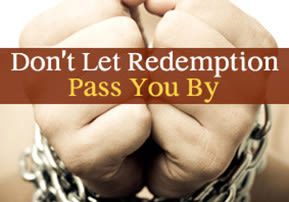
Don’t Let the Redemption Pass You By
When the war began in Iraq, the Israeli government advised its citizens to start sealing their rooms against the possibility of chemical warfare...

When the war began in Iraq, the Israeli government advised its citizens to start sealing their rooms against the possibility of chemical warfare. At a Torah lecture that I attended a few days afterwards, the speaker remarked that sealing rooms is not a new phenomenon for the Jews.
He pointed out that when God ordered the Jewish people to take the blood of a lamb and smear it along the lintel and door-posts at the entrance to their homes before the final plague – the slaying of the firstborn sons – He was, in effect, telling the Jews to seal their rooms. The blood on the lintel and door-posts of their homes, where they were huddled inside, was their protection against the destruction that was going on outside.
The verse that refers to this incident (Shemot 12:23) reads as follows: For the Lord will pass through to smite the Egyptians; and when He sees the blood on the lintel, and on the two door-posts, the Lord will pass over the opening and He will not allow the destroyer to come into your houses to smite you.
Like many aspects of the Exodus, this verse is highly enigmatic. For why did the Jews have to “seal their rooms” in this manner? Surely God didn’t need a visual sign to know which homes belonged to the Jews and which homes belonged to the Egyptians.
And who is this mysterious “destroyer” that is referred to at the end of the verse? If it is God Who will smite the firstborn of the Egyptians, as the beginning of the verse states, what is the job of this “destroyer” that threatens to come inside the homes of the Jews and destroy them?
As we will see, these two questions are really two sides of the same coin, and together they can perhaps lead us to a deeper understanding of the spiritual work we are supposed to be doing on Seder night.
The Bleating of the Lambs
According to our tradition, 80 percent of the Jewish people who were in Egypt at the time of the Exodus chose to remain there. It is an astounding statistic. Why would anyone – let alone a vast majority – chose to remain a slave at the moment when the doorway to freedom is opening in front of them?
The answer, as our Sages explain, is that the slavery in Egypt wasn’t just a physical slavery. Although the Jewish people had to endure backbreaking physical labor, the real slavery – the slavery that threatened to destroy them as a people – was a spiritual slavery. In other words, the daat of the Jewish people was enslaved.
What is daat? A literal translation is that the word daat means knowledge. However, daat is not just facts and figures that remain stuck in our heads. When knowledge unites with one’s inner core and influences a person’s actions, that is daat. When we make an informed decision, when we consciously choose a course of action, we are using our power of daat.
An example of how daat works – or doesn’t work – is the prohibition against stealing. Every one of us knows that stealing is wrong, but not all us of translate this knowledge into action. For instance, when a person shoplifts an item from a store – whether the item costs $50 or 50 cents – he is acting without daat. His daat is enslaved to another power. It is in exile.
But what do we mean when we say that the daat of the Jewish people was enslaved in Egypt? To put it simply, the people had lost their emunah – their faith in God.
Emunah is made up of two parts. First, a person who has emunah believes that there is a Creator of the world. Second, this person also believes that the Creator is actively involved with every aspect and every detail of His Creation.
The ancient world knew that there was a Creator. However, they assumed that He was no longer actively involved in the running of the world and had delegated His powers to lesser deities – the sun, the moon and stars, various animals and the like.
The Patriarch Avraham (Abraham), however, knew otherwise. He knew that God was always with him, and guiding him and watching over him. And Avraham imparted this knowledge to his descendants.
But as the decades of enslavement went by, many of the Jewish people began to be influenced by the Egyptian way of thinking. They no longer believed that God heard their cries or cared about their pain. And because they lost their belief in God’s active presence in their daily lives, they also ceased to believe in God’s promise to Abraham that He would one day return them to their land. Therefore, when Moshe (Moses) came along and told them that the redemption was at hand, 80 percent of them refused to listen.
Even those who wanted to believe in Moshe’s message still found it difficult. The Egyptians were so powerful and the crack of the whip was so real, whereas the promise of redemption – well, it was just words. How could they dare to believe that God was really going to redeem them?
God’s answer to them was to sacrifice the Passover lamb. Why a lamb? And what did sacrificing this lamb have to do with the redemption?
The lamb was one of the most important of all Egyptian gods. What’s more, the month of Nissan, when the Exodus took place, corresponds to the Zodiac sign of Aires the Ram, and so this was the time when the lamb-god should have been at the height of its powers.
Openly desecrating this god would normally have meant certain death. So making the decision to follow God’s command was not easy. And yet those who chose to listen – and to do – were given the ability to clearly understand what was at stake: either continue to believe in the power of the Egyptians and their gods, or believe in God. Remain a slave, or be redeemed.
The blood smeared on the lintel and door-posts of each Jewish home was, therefore, not for God’s knowledge. It was, instead, the means whereby the Jews became reconnected to their power of daat – their belief that God did care about them and that He would, in fact, fulfill His promise and redeem them.
Today, when there is still so much political uncertainty, many of us are once again in a situation where we feel that our daat is in danger of being enslaved. So how can we get through this difficult time? How can we strengthen our emunah when the Final Redemption seems as far away as ever?
We can’t slaughter a lamb and smear its blood around our doorways since today we no longer have the mitzvah of Korban Pesach (slaughtering a lamb). However, an answer to our problem can be found in the Haggadah – and the person who can help us is none other than the Wicked Son.
Destroying the Destroyer
In the Haggadah we read about the Fours Sons – the Wise Son, the Wicked Son, the Simple Son and the Son Who Does Not Know How to Ask.
The Wicked Son asks: “What is this service to you?” (Shemot 12:26).
By “this service” he is referring to the Korban Pesach. By saying “What is this service to you?“, he is implying that the Korban Pesach has no meaning for him.
However, he is not just saying that the physical actions involved in performing this mitzvah have no meaning for him – something that many of us may feel when it comes to the whole issue of animal sacrifices. He is saying that he rejects what the Korban Pesach means in spiritual terms. He is denying the concept of Divine Providence. He is denying that God hears our cries and will act on our behalf. He is denying the possibility of redemption.
In other words, the Wicked Son is the prophet of doubt. The slayer of hope. The destroyer of daat.
So why is the Wicked Son invited to join us at the Seder table? Because whether we choose to admit it or not, the Wicked Son is no stranger to us. According to our Sages, we all have within us aspects of each of the Four Sons – including the wicked one.
All of us, at times, have doubts. All of us, at times, feel far away from God. We all have within us a personal Egypt – a place where we are enslaved. Even though we have cried out to God on numerous occasions to free us from this Egypt, we have not yet gotten the answer we want. And so we begin to doubt. We begin to despair that the redemption – either a personal redemption or the redemption of the entire Jewish people – will ever happen.
Sometimes this despair takes the form of anger, and sometimes it masks itself as indifference, or mockery.
“What does this service – all this talk about redemption – mean to you?” we ask, with an expression on our face that suggests we are above it or beyond it – anywhere, in fact, but in it.
But no matter what guise they take, the doubts and despair of the Wicked Son cannot be allowed to run wild unchecked. They cannot be allowed into our homes. They have to be confronted before they smite us – cut us off from our Source – and the time when we do battle with the Wicked Son is on Seder night.
According to the Haggadah, we have to “blunt his teeth,” so that he can no longer talk. But we do not banish him from the table. We make him stay – and listen. We try to reconnect even him to daat.
The Wicked Son has to listen to the words of the Haggadah – our retelling of the Exodus from Egypt, our singing of God’s praises and our prayers for the Final Redemption. But to truly silence the Wicked Son – to make sure that his nagging doubts and destroying despair stay out of our homes – we have to do more than just mouth the words of the Haggadah. The words – and the message of emunah that they convey – have to penetrate our hearts. They have to create for us an opening – a place where we can plant a new seed of hope and develop an even stronger belief in the redemption.
The following parable by Rabbi Yaakov Levitt of Bialishtok illustrates this concept.
When a villager became very ill, a doctor came to his home to examine him. After the examination, the doctor wrote out a prescription.
“Here is the prescription,” the doctor said to the man’s wife. “Dissolve it in a cup water and give it to your husband three times a day, and you will soon see an improvement.”
The doctor left and the sick man’s wife at once began to fulfill the doctor’s instructions. She tore up the piece of paper that had the prescription written on it into small pieces, took one of the pieces and placed it in a cup of water and gave it to her husband to drink.
When after several days the woman saw that her husband’s condition was steadily getting worse – instead of improving – she angrily sought out the doctor. The doctor returned to the patient’s home and asked to see the medicine that was being given to the sick man.
“We’ve already given him the last piece of paper,” the wife said.
“What do you mean, the last piece of paper?” inquired the doctor.
The wife then explained how she had fulfilled the doctor’s instructions.
“You foolish people,” the doctor exclaimed. “Do you really think a person can be cured by means of words written on a piece of paper? I never meant for him to ingest the prescription, but rather the medicines that I prescribed for him. If he had taken the medicine, he would have been cured by now.”
This parable tells us that words alone – even the words of the Haggadah – can’t bring about a cure for this present Exile. An empty retelling of the Exodus – one where we are feeling too uninspired to feel the joy of the redemption from Egypt and feeling too depressed to beg and plead for the future one – can find us leaving the Seder table with even more doubts than we had before.
The only medicine for this malaise is to reconnect to our power of daat. We have to make an active decision to use the text of the Haggadah to fire up our powers of emunah. We have to realize what is at stake – either another year of terrorist bombings, staggering unemployment and hungry children, or the Days of Mashiach and the rebuilding of the Temple. We have to make the idea of redemption so real to us that we call out to God on Seder night with our whole hearts as we ask Him to redeem us. Today. On this very night.
A Night When Anything Is Possible
Usually, before God will turn to us, He requires that we first make an opening in our hearts. But what if we find it difficult to create this opening, because our hearts are numb with pain or wracked by doubt?
According to the Zohar (III, 71b) our verse that reads “God passed over the opening” can also be read “God bypassed the opening.” On that first Pesach, when the Jewish people were struggling to strengthen their emunah, He bypassed His requirement that the Jews must open their hearts to Him before He will redeem them.
Therefore, no matter what level of emunah we currently have – even if it is just a tiny flame flickering in a very dark night – we should never have doubts about our right to ask on Pesach for a redemption, both for a personal redemption and a redemption for all the Jewish people. And in the merit of our attempts to strengthen our emunah in God’s Providence and His intention to bring about the Final Redemption, through the reciting of the Haggadah, may we be privileged to greet Mashiach and rejoice in the rebuilding of the Temple this Pesach.
***
Libi Astaire is the author of Choose Light! Chassidic Tales for Chanukah, Rosh Hashanah, Sukkos, Passover & Shavuos; Breakfast with Rav Zusha and Other Stories to Wake Up Your Soul; and the award-winning Jewish Regency Mystery Series. Visit her website for more information about these and other books.



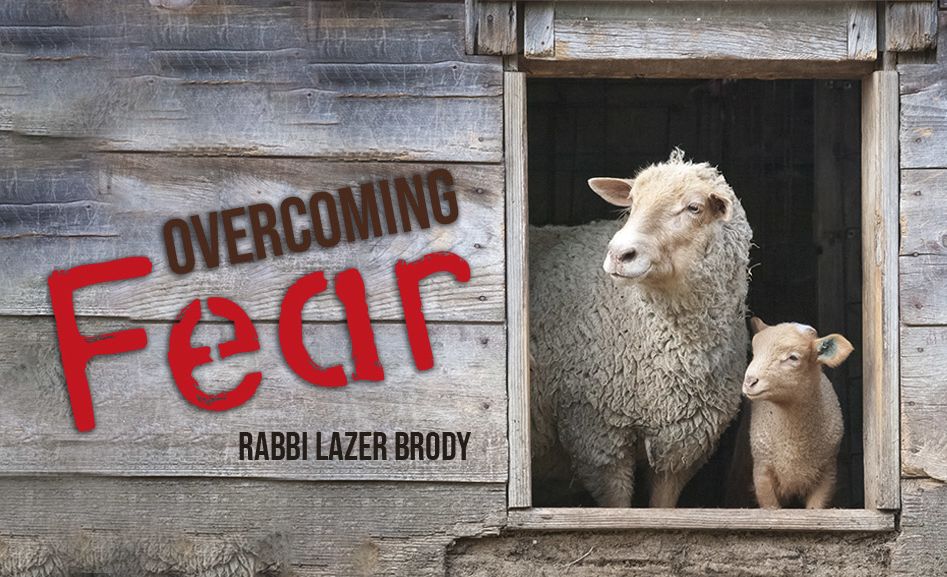
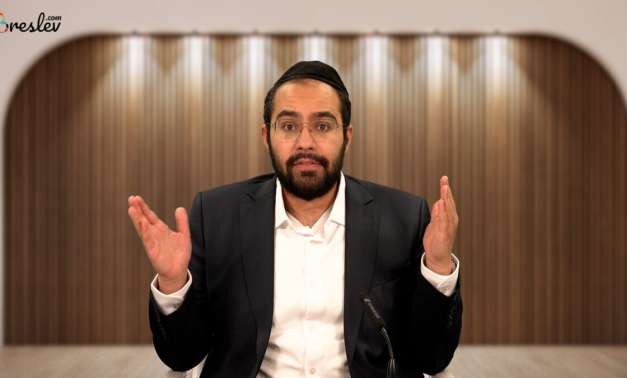
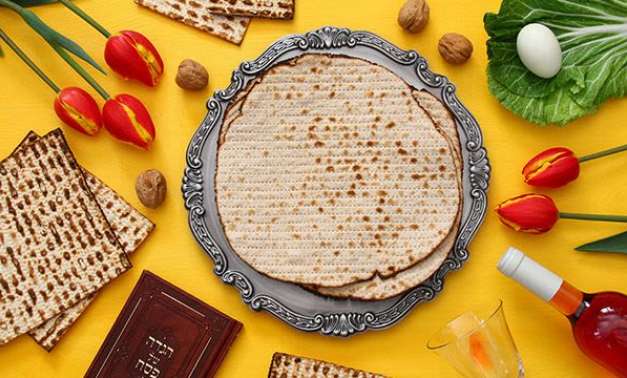
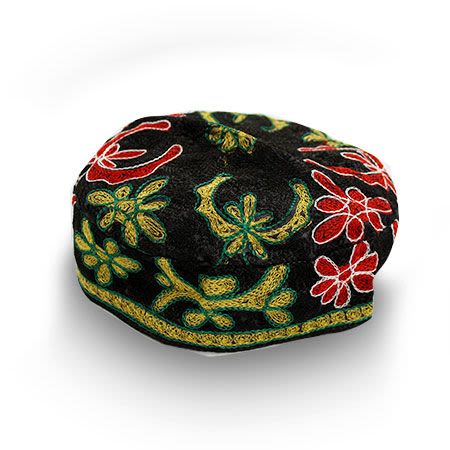
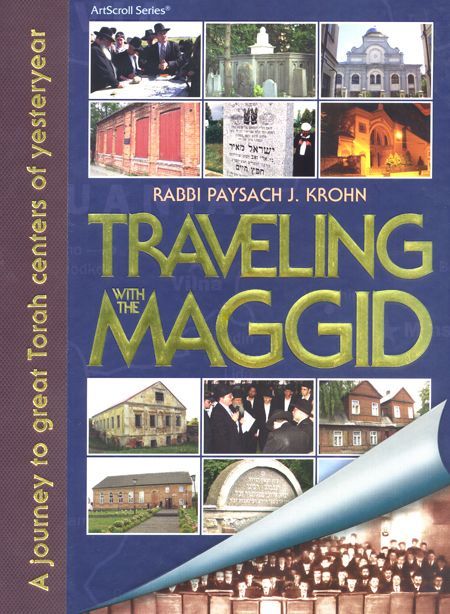
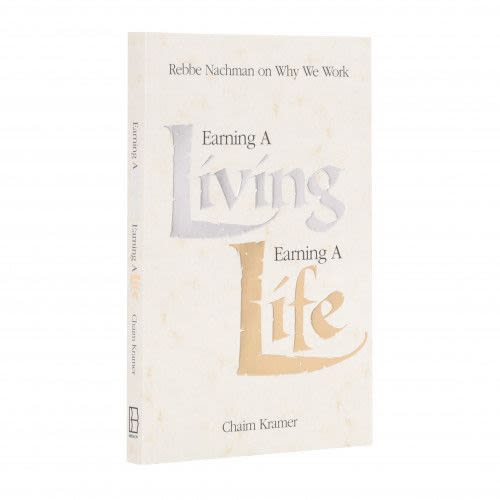
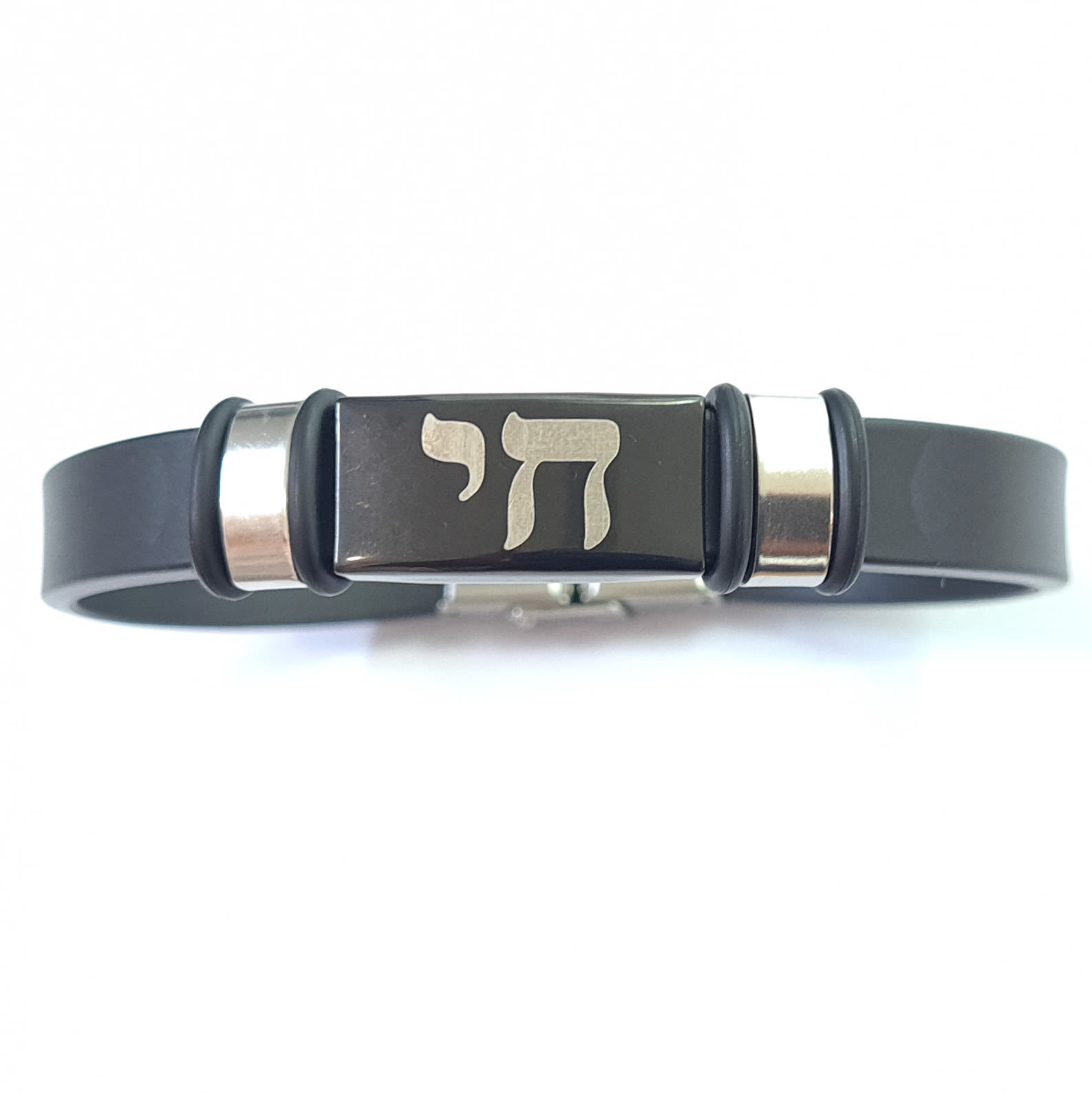
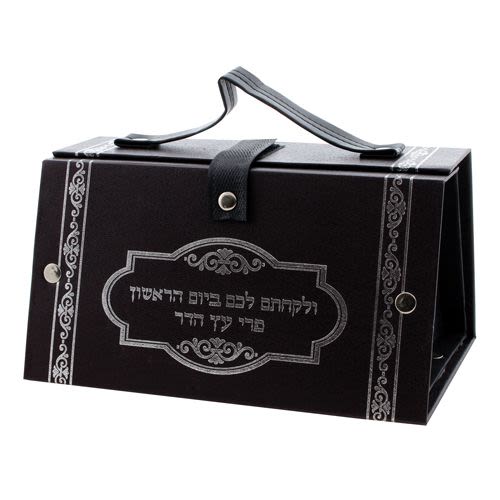
Tell us what you think!
Thank you for your comment!
It will be published after approval by the Editor.